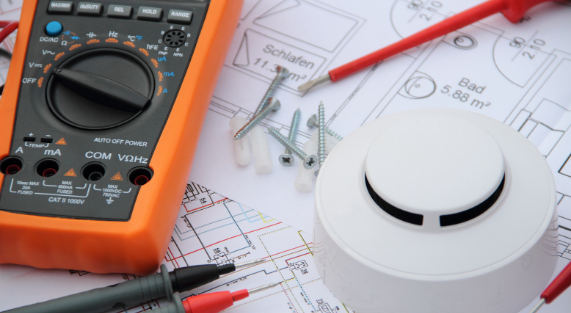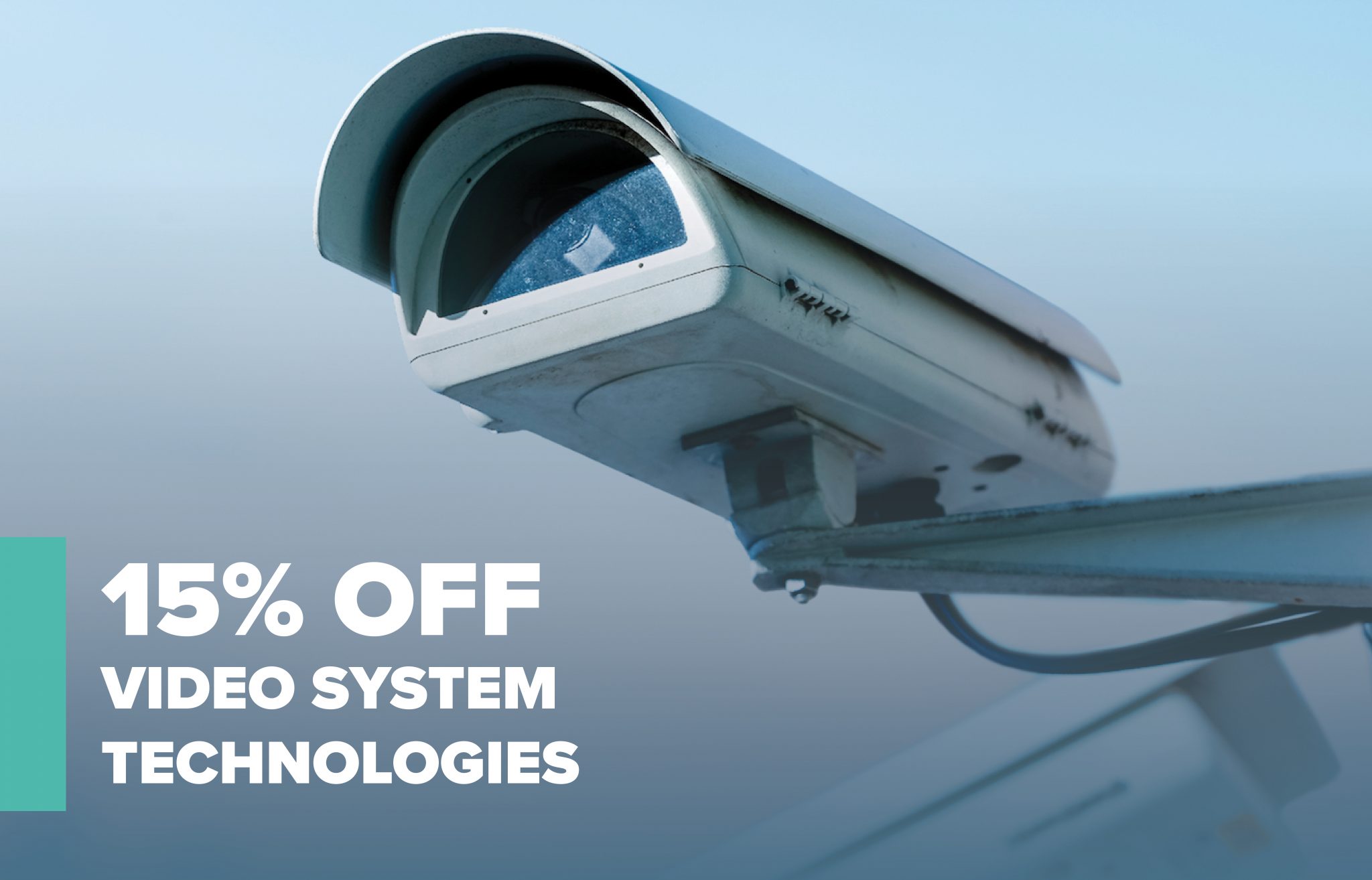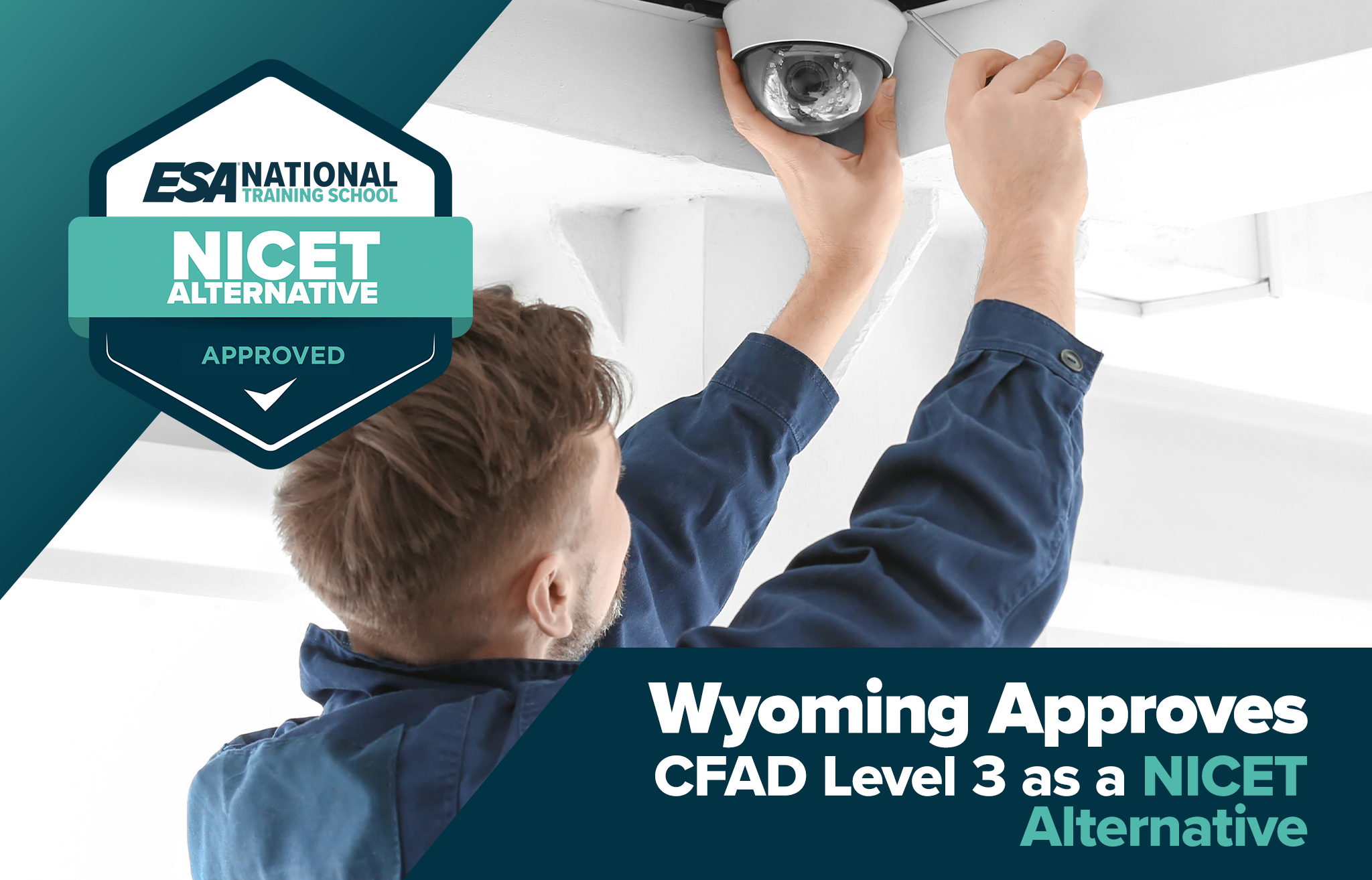
Residential Fire Installation Training – Are You Code Compliant?
This month marks my eighth year working for ESA. Looking back over these years, I find myself reflecting on all that I have learned — and it is substantial!
I entered the industry knowing nothing about the electronic security or life safety fields, but after working alongside so many subject matter experts, I have come a long way in my knowledge base. The one area I am proud of knowing so much about is fire alarm code requirements — and the impact these codes have on saving lives.
All this information, combined with recent tragic residential fire deaths in the news, led me to question whether the professionally monitored fire alarm system we have installed in our home is enough. How do I know? The answer is, I don’t know, but the company that installed our systems should know. Shouldn’t they?
As we all should know, there are very specific codes and standards that must be complied with for residential systems to work properly. I was surprised today when I saw a question posed on a very popular and widely read industry-specific discussion group regarding NFPA requirements for installing and testing residential fire alarms. The person who submitted the question referred to these as ‘new NFPA requirements,’ but they are not. They have been in the code for quite some time.
One code that is especially significant is NFPA 72 2019 10.5.2 that states “10.5.2 System Installer. 10.5.2.1 Installation personnel shall be qualified or shall be supervised by persons who are qualified in the installation, inspection, and testing of the systems. 10.5.2.2 State or local licensure regulations shall be followed to determine qualified personnel. 10.5.2.3 Personnel shall provide documentation of their qualification by one or more of the following: (1) Registration, licensing, or certification by a state or local authority (2) Certification by an organization acceptable to the authority having jurisdiction (3) Manufacturer’s certification for the specific type and brand of system provided. 10.5.2.4 System installation trainees shall be under the supervision of a qualified system installer. 10.5.2.5 The system installer shall provide evidence of their qualifications and/or certifications when requested by the authority having jurisdiction.”
ESA’s National Training School (NTS) has a course – Residential Fire Alarms – that teaches the fundamental code requirements of installing residential fire alarms and it is available online or instructor led. Sadly, ESA does not sell many instances of this course. To be honest, it is the lowest selling course we offer.
Structure fires killed 2,980 people in the U.S. in 2019, per the NFPA “Fire Loss in the United States During 2019” report. Those statistics alone are reason enough why technicians need to be trained on the proper installation and service of residential fire systems. A couple of years ago, the Texas Fire Marshall’s office took this seriously and made a new rule that any employee involved in the installation or sale of a residential fire alarm system must take an approved residential fire course.
Based on my education in residential fire, I called our security provider and asked some questions, not as someone who works for ESA, but as a mother of two young children. The first, “have your technicians taken any formal training in residential fire alarm systems?” Thankfully, their answer was “yes,” and they specified what training they had taken. I was relieved they could answer this mother’s question.
Let me ask you — “how will your company show compliance with NFPA 10.5.2?” “How will your technicians answer from a mother: ‘how do you know this is the best fire safety system to protect my family?’” ESA’s NTS Residential Fire Alarm course is seven hours and will make answering both vital questions very easy.








